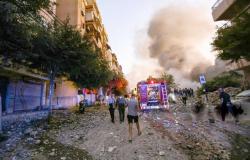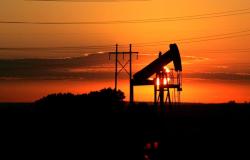Photo credit, Reuters
- Author, Frank Gardner
- Role, BBC Security Correspondent
-
September 29, 2024
Israel’s assassination of Hassan Nasrallah, the historic leader of Hezbollah, constitutes a major escalation in the war between it and the Lebanese militant group.
It has potentially brought the region closer to a much broader and even more damaging conflict, which involves both Iran and the United States.
So what will happen next?
Much depends on three basic questions.
What will Hezbollah do?
Hezbollah suffers blow after blow.
Its command structure was decapitated, with more than a dozen leaders assassinated. Its communications were sabotaged by the shocking detonations of its pagers and walkie-talkies, and many of its weapons were destroyed by airstrikes.
Mohammed Al-Basha, a US-based Middle East security analyst, says: “The loss of Hassan Nasrallah will have significant consequences, as it could destabilize the group and alter its political and military strategies in the short term.”
But any hope that this vehemently anti-Israeli organization will suddenly give up and seek to make peace on Israel’s terms is probably misplaced.
Photo credit, EPA
Hezbollah has already promised to continue the fight. It still has thousands of fighters, many of whom recently fought in Syria, and they are demanding revenge.
It still has a large arsenal of missiles, many of which are long-range, precision-guided weapons that can reach Tel Aviv and other cities. There will be pressure within his ranks to use them quickly, before they are destroyed in turn.
But if they do, in a massive attack that overwhelms Israel’s air defenses and kills civilians, Israel’s response will likely be devastating, wreaking havoc on Lebanese infrastructure and even extending to ‘to Iran.
What will Iran do?
This assassination is as much a blow to Iran as it is to Hezbollah. Iran has already announced five days of mourning.
It also took emergency precautions by hiding its leader, Ayatollah Ali Khamanei, in case he too was assassinated.
Iran has yet to respond to the humiliating assassination in July of Hamas political leader Ismail Haniyeh in a Tehran guest house. What has just happened will encourage the regime’s hardliners to consider some form of response.
Iran has a galaxy of heavily armed allied militias across the Middle East, the so-called “axis of resistance.”
In addition to Hezbollah, it has the Houthis in Yemen and numerous groups in Syria and Iraq. Iran could well ask these groups to intensify their attacks against Israel and American bases in the region.
But whatever response Iran chooses, it will likely be calibrated so as not to start a war it cannot hope to win.
Photo credit, Getty Images
What will Israel do?
If anyone had any doubts before this assassination, they will have none now.
Israel clearly has no intention of interrupting its military campaign to respect the 21-day ceasefire proposed by 12 countries, including its closest ally, the United States.
The Israeli military believes that Hezbollah is now in the hot seat and therefore wants to continue their offensive until the threat of these missiles is removed.
Short of a capitulation by Hezbollah – which is unlikely – it is difficult to see how Israel can achieve its war objective, namely eliminating the threat of Hezbollah attacks, without putting troops on the ground.
The Israeli Defense Forces released footage of its infantry training near the border for this very purpose.
But Hezbollah has also spent the last 18 years, since the end of the last war, training for the next. In his last public speech before his death, Nasrallah told his supporters that an Israeli incursion into southern Lebanon would be, in his words, “a historic occasion.”
For the IDF, it would be relatively easy to enter Lebanon. But getting out could – as in Gaza – take months.






